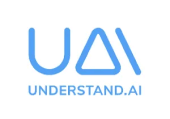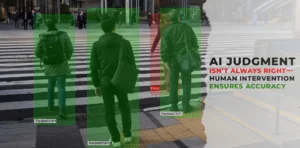
Building Trust In AI – One
data point at a time
Fortune 500s and tech giants trust our Human-AI synergy to power what’s next!









Ensure quality data fuels your AI/ML models
Unlock accurate, relevant and reliable data
for deploying highly effective AI/ML with our Al enablement services
Trust and Safety
Fostering online trust with safety, identity verification, and content moderation.
Computer Vision
Delivering AI-powered solutions with human feedback for exceptional accuracy.
Catalog Management
Driving catalog enrichment, seller onboarding, logistics, and exceptional customer experiences.
Generative AI
AI/ML services integrating human feedback, annotation, and evaluation expertise.
Get customised solutions for your business needs
Our services are tailored to elevate the efficiency of your AI/ML processes
Skilled
Employees
Data
Transactions
Live Projects
Fortune 500
Clients
NPS Score
Successful client stories and case studies
Deep dive into our journey of partnering with the global business giants


Enriching Metadata for Smart Data Curation Platform
for Artificial Intelligence (AI) & Machine Learning (ML)
1 min read
Learn More
Real-time Digital Identity Verification
for a US based identity verification company
1 min read
Learn MoreTestified and trusted by
the best in the world of business
I am really happy at all the great things we have been able to achieve in the past 1 year. The relationship now has a solid foundation, and I am sure NextWealth will continue to be a formidable partner going ahead, bringing a delightful experience for our customers.
NextWealth has been an invaluable partner to us, significantly accelerating our growth by handling critical data operations and providing strategic insights.
NextWealth’s hard work and dedication are truly making a difference, streamlining our processes significantly. We really appreciate it!
My experience with NextWealth has been wonderful. The diligent team consistently delivers on time with a focus on quality. Their innovation-driven mindset fosters a win-win situation for both teams.
I am happy with the improvement in the performance. I have seen positive improvement, and we have a long way to go.
NextWealth’s in-depth analysis helped us pinpoint exactly what needs to be done to address the issues.
With excellence in Quality, Cost, and TAT—key pillars of any operation—NextWealth sets a benchmark for operational efficiency and beyond.
We have experienced significant growth—a success we could not have achieved without the expert support, hard work, and commitment of NextWealth.
We lead the way in
AI Enablement Services across industries
We enable Media & Technology, Retail & Ecommerce, Automotive,
Industrial/Manufacturing, BFSI, Healthcare/Lifesciences and other industries in deploying AI/ML effectively
Media & Technology
Digital transformation solutions for media
and technology companies.
Retail & eCommerce
End-to-end solutions for modern retail and
eCommerce businesses.
Automotive
Smart solutions for the automotive
industry.
Industrial/Mfg.
Manufacturing and industrial process
optimization.
BFSI
Solutions for banking, financial services,
and insurance.
Healthcare/Lifesciences
Innovative solutions for healthcare sector.
Leverage our expertise for end to end
AL/ML enablement solutions
From conception to execution, it is simple, smooth and seamless
Initial Assessment
We begin by thoroughly understanding your needs and
challenges, analyzing your data requirements, and
identifying key objectives.


Custom Solution Design
Our experts design a tailored solution that combines the
right mix of human intelligence and technology to meet
your specific needs.
Implementation & Scale
We deploy our solution with a focus on quality and
efficiency, scaling operations to match your requirements
while maintaining consistency.


Continuous Optimization
We continuously monitor, measure, and optimize
performance to ensure the highest quality outcomes
and operational efficiency.
Explore Resources
Know how we are accelerating business growth by enabling effectiveness in AI/ML

Reducing Computer Vision Errors with Precision: The Role of Polygon Annotation
1 min read

How Video Annotation Transforms Surveillance into Situational Awareness for Real-Time AI
1 min read
Latest Update

How Human-in-the-Loop Enhances Accuracy in Computer Vision Systems
1 min read
